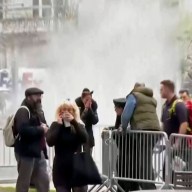For University of Missouri-Kansas City professor Kristi Holsinger, every criminal justice course requires a foundational understanding of restorative justice principles. Criminal justice, in her eyes, is a form of activism: a means of addressing social inequality and injustice.
Her courses at UMKC challenge students to confront these issues face to face, literally: One brings prisoners to campus and includes them in classroom activities.
This month, Ashgate Publishing will release her first book, “Teaching Justice: Solving Social Justice Problems Through University Education,” which re-envisions criminal justice classrooms as a place where the most vexing issues in the United States can be explored and addressed in an inquisitive, compassionate, non-partisan environment.
“When I developed [courses] at UMKC, I discovered that the students had traditional criminal justice concepts down, but they hadn’t done a lot of work putting criminal justice practices in a larger justice perspective,” says Holsinger. “The class became about defining justice in a larger way. It became about community activism.”
Intended for criminal justice teachers, “Teaching Justice” is packed full of ideas for bringing activism to the classroom and elucidating social justice concerns amongst students.
“A lot of the ideas in this book challenge the status quo. In that way, it could be negatively categorized as ideological,” says Holsinger. “But I don’t think it’s good to model apathy or pretend that we don’t have a viewpoint. Also, in my class, I don’t dictate how students define justice or what they determine to be a social problem.”
















